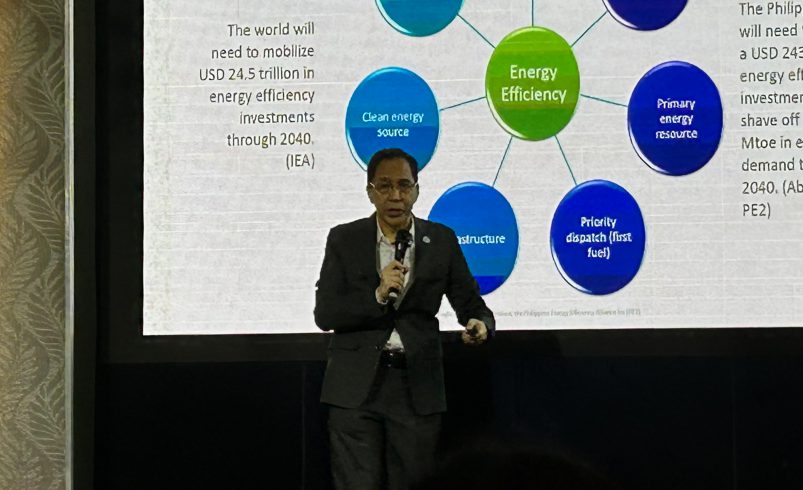ESCO adoption can unlock PHP 12T in energy savings, cut reliance on fossil fuels –PE2
- October 20, 2025
- 0

The Philippine Energy Efficiency Alliance (PE2) is calling for broader adoption of the Energy Service Company (ESCO) model, saying that doing so can mobilize up to PHP 12 trillion in private investments and accelerate the Philippines’ shift to cleaner and more affordable energy.
Speaking at ENERCON 2025: the 4th International Conference on Energy and the Environment, PE2 president Alexander Ablaza said ESCOs allow businesses and institutions to cut energy use without upfront costs, since project implementers are paid from verified savings rather than initial capital.
“It’s the way you implement projects, it’s the way you connect them with capital.” Ablaza said, emphasizing that financing structures, not just technologies, will determine the pace of efficiency deployment.
Ablaza said that expanding ESCO adoption could unlock long-term energy savings, reduce reliance on new generation capacity, and lower national energy demand. He added that innovative financing models, such as shared-savings contracts and SuperESCOs—entities that bundle multiple efficiency projects for investors—are broadening access to capital and enabling scalability.
His company, Climergy, is among Southeast Asia’s first private SuperESCOs, joining counterparts like SOFIA in Canada.
According to PE2, a robust national energy efficiency push could mobilize PHP 12 trillion in investments, create nine million green jobs, and avoid 182 million tons of oil equivalent in energy use through 2040. These measures could also defer up to 46 gigawatts of new power infrastructure and reduce dependence on fossil fuels.
The push for ESCO adoption comes amid recent collaboration between the Department of Energy (DOE) and PE2. On October 14, the two groups met to discuss initiatives for accelerating energy efficiency and conservation programs, agreeing to expand ESCO performance contracts, engage local governments, and review fiscal incentives for long-term projects.
Ablaza previously noted that current tax classifications are limiting for long-term EEC projects, highlighting the need for more supportive policies. The meeting also explored integrating PE2’s Energy Efficiency Day into DOE’s PCCEEC and tradeable certificates for project developers, signaling a stronger alignment between policy and market-driven initiatives and positioning the Philippines as an emerging ESCO growth hub in Southeast Asia.
At ENERCON, Ablaza explained that energy efficiency should be treated as the “first fuel”—a resource deployed before renewable energy. He noted that nearly 200 countries at COP28 committed to doubling global energy efficiency improvements by 2030 as part of the net-zero pathway, but the Philippines has yet to sign the pledge.
PE2 said that stronger policy support, investor confidence, and faster ESCO deployment will be essential to meeting national energy goals while keeping electricity affordable for consumers.
As the Philippines moves toward a more efficient and sustainable energy future, will stakeholders act quickly enough to scale the ESCO model and unlock its full potential?
Follow Power Philippines on Facebook and LinkedIn or join our Viber community for more updates.